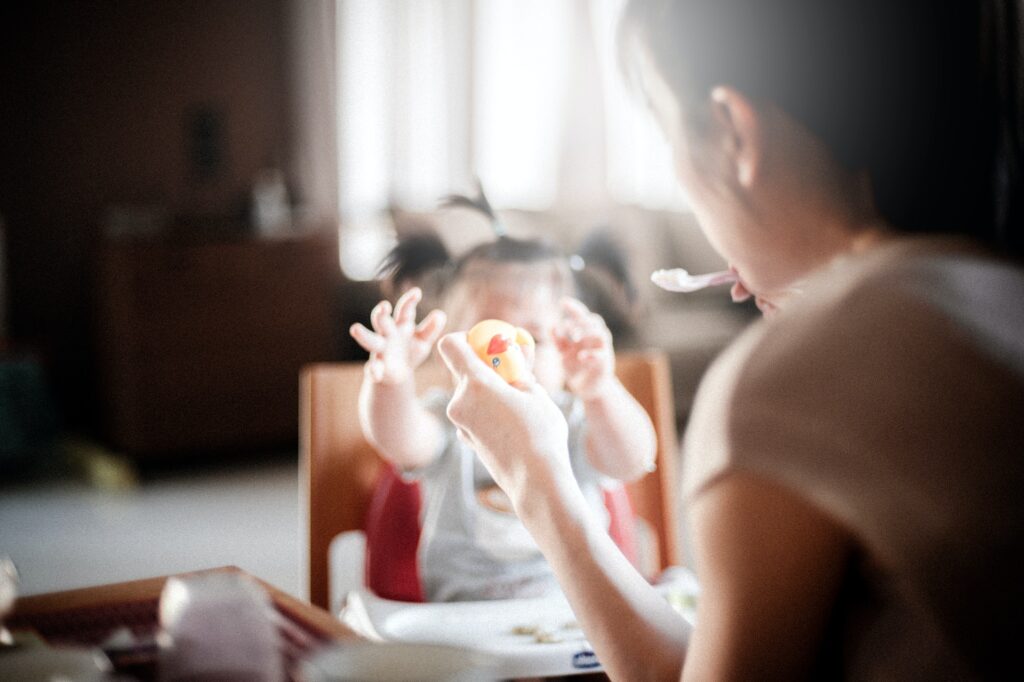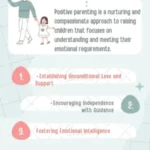In the realm of parenting, the term “Positive Parenting” has gained substantial recognition for its profound impact on a child’s behavioral and emotional well-being. This approach focuses on fostering warm, positive family interactions, guiding children through reinforcement of their better impulses. The goal is to create a nurturing environment that reduces stress, allowing children to associate social interactions with positive emotions, such as feeling listened to, respected, loved, and cared for.
Understanding Positive Parenting
Positive parenting stands in stark contrast to coercive and punitive methods, such as yelling or shaming. Instead, it encourages parents to replace negative control attempts with positive guidance. By engaging in upbeat discussions and offering better alternatives, parents can contribute to the development of strong self-regulation skills and emotional well-being in their children.
The Evidence
Numerous studies worldwide have linked child behavior problems to coercive and punitive parenting styles. Conversely, children with parents who exhibit higher levels of warmth, kindness, and involvement are less likely to misbehave or experience psychological issues. Positive parenting has also been associated with the development of better language skills and lower rates of stress-related brain abnormalities.
While these findings present correlations, evidence suggests a causal relationship. Studies indicate that adopting positive parenting techniques can lead to improvements in children’s behavior and emotional well-being. The approach has shown success not only at home but also in the classroom, where it has reduced suspension rates and contributed to improved language development in infants.
10 Positive Parenting Tips for Success
1. Get Inside Your Child’s Head
Understanding a child’s perspective is crucial. By delving into their thoughts and motivations, parents can identify legitimate needs behind misbehavior, fostering empathy and effective communication.
2. Apply the Golden Rule
Empathy, support, and constructive guidance are paramount. Parents should strive to be the arbitrator and mentor they would desire for themselves, promoting fair-minded and sympathetic interactions.
3. Master the Art of Distraction
For younger children, distraction can be a powerful tool to prevent or redirect undesirable behavior. Anticipating and addressing potential issues proactively can contribute to a more harmonious family environment.
4. Use Strategic Humor and Playfulness
Injecting humor into interactions can transform discipline into play. Turning tasks into games and using playful language can motivate children to cooperate while maintaining a positive atmosphere.
5. Ensure Positive Interactions Outweigh the Negative
Maintaining a balance of positive social interactions, even in the face of behavior problems, contributes to friendlier, trusting relationships. Establishing priorities about which misbehaviors to address allows for a gradual improvement in behavior.
6. Clearly Communicate Standards and Rules
Children should be engaged in two-way conversations about family standards. Explaining the reasons behind rules fosters understanding and contributes to the development of moral reasoning skills.
7. Find Ways to Say Yes
Rather than dismissing children’s requests outright, help them find acceptable alternatives. Engaging in discussions and negotiations, even with teenagers, can lead to more cooperative behavior.
8. Catch Children at Being Good
Praising children for positive behavior is crucial. Adolescents respond well to rewards, and young children are highly receptive to praise, leading to fewer subsequent behavior problems.
9. Be an Effective “Emotion Coach”
Providing emotional coaching involves discussing feelings and strategies for handling difficult situations. This reassures children of understanding and respect while aiding the development of strong self-regulation skills.
10. Manage Your Emotional State
Before interacting with your child, ensure your emotional state is under control. Anger and stress can undermine positive parenting efforts. Taking a moment to calm down contributes to more effective communication and interaction.
Conclusion
In conclusion, positive parenting is a holistic approach that goes beyond traditional discipline methods. It not only fosters a nurturing family environment but also contributes significantly to a child’s overall development. By implementing the 10 tips outlined above, parents can create a positive and supportive atmosphere that promotes emotional well-being and cooperation in their children.





